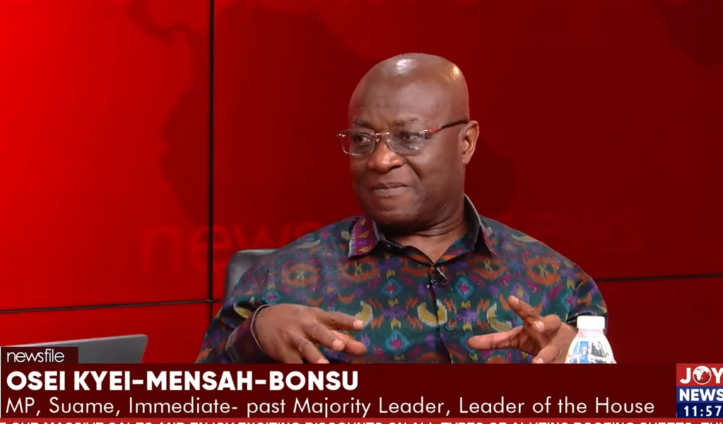In an exclusive interview with
"However, there is a new order in the standing orders, which stipulates that the leadership of the majority caucus is chosen by the members of the caucus who are parliamentarians."
He continued, "In the same way, it is the members of Parliament within the minority caucus who choose their leadership.
"There is a conflict between the provisions of the party's constitution and those of the standing orders. This conflict is clear. But between the two documents, the standing orders hold greater authority.
"The standing orders are statutory; they are law — national law. The party's constitution, on the other hand, is not a national law, and that is what people should understand," he explained.
Kyei-Mensah-Bonsu emphasised that such decisions should be made through caucus consultation, as mandated by the party's constitution.
He argued that the leadership of the party should be determined by Members of Parliament themselves, reflecting the importance of maintaining institutional memory and ensuring democratic processes.
"That is what people should understand. I do think that if it is left to the caucus to choose the leadership, they will likely consult the party before concluding who becomes their leader. And so, that should be the procedure.
"It shouldn't be as it has been done. I believe that if it is left to the caucus members, they will be pragmatic enough to realise the need for some form of continuity in the leadership. For reasons of maintaining institutional memory, you cannot clear the front bench entirely.
"So, some continuity, in my view, will be required. I thought all these considerations would be left to the caucus themselves because that is the law. It is not the other way around.
"My hope is that the caucus will find a way to align with what the Council has done to avert any unrest within the party. We need peace in the party. However, the truth is that the decision ought to have come from the caucus, not the Council.
"I appreciate the fact that the provision exists in the party's constitution for the Council to choose the leadership, but the standing orders clearly place this responsibility with the caucus," he told
Reacting to the party's performance in the Ashanti Region, he said, "Yes, Ashanti has been the stronghold, and we lost close to about 500,000 votes."
He also pointed out that similar voter apathy was observed in other regions, such as the Central Region.
"People simply refused to vote, leading to the loss of significant support," he explained, emphasising the need for the party to investigate these trends and take corrective measures for future elections.
His comments come after the National Council of the
The Member of Parliament for Effutu, Alexander Kwamina Afenyo-Markin, was confirmed as the Minority Leader, bringing his legislative expertise and leadership skills to the forefront.
Meanwhile, Patricia Appiagyei, the Member of Parliament for Suame, has been appointed as the Deputy Minority Leader.
The Member of Parliament for Nsawam-Adoagyiri, Frank Annoh-Dompreh, will serve as the Chief Whip, a role that involves managing parliamentary activities effectively.
Additionally, the Member of Parliament for Tolon, Habib Iddrisu, has been confirmed as the 1st Deputy Whip, while the Member of Parliament for Mpraeso, Davis Opoku Ansah (OPK), will take on the role of 2nd Deputy Whip, further solidifying the party's lineup.
Listen to the interview below:
